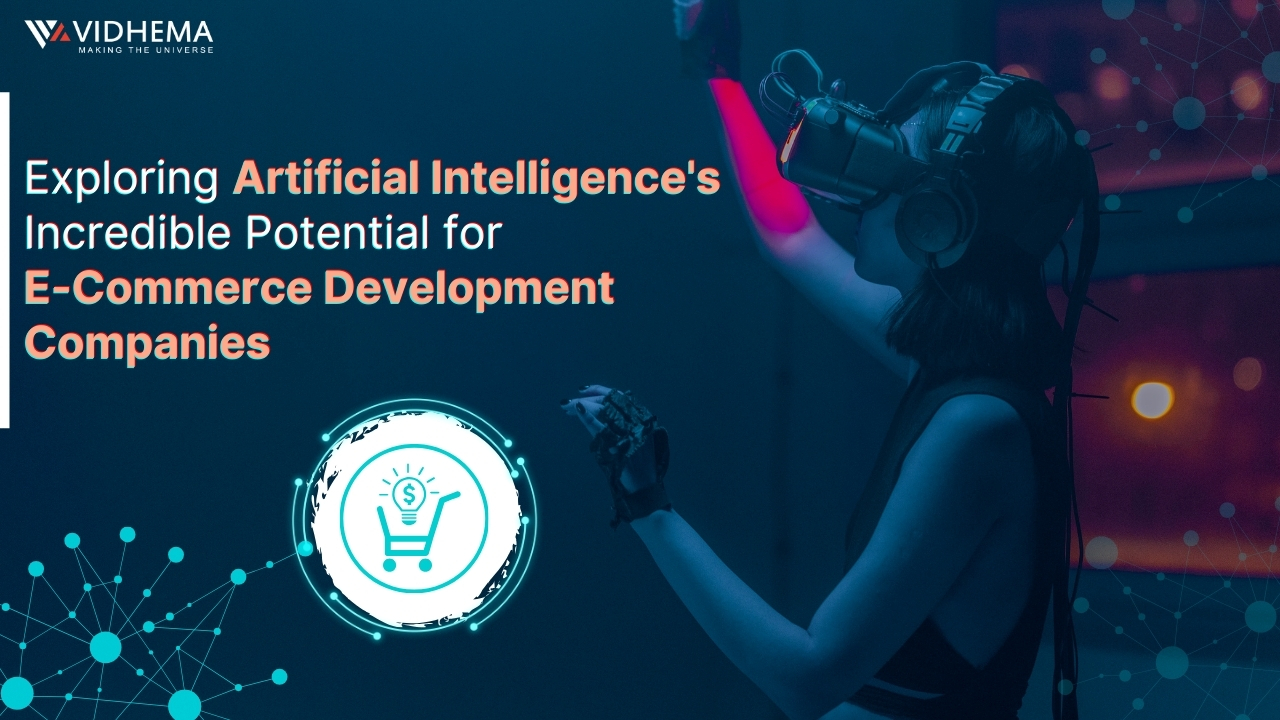
Introduction:
In the digital age, the landscape of e-commerce is continually evolving, driven by technological advancements that redefine the way businesses operate and customers shop. One such groundbreaking innovation is Artificial Intelligence (AI), which has emerged as a game-changer for e-commerce development companies, revolutionizing the way they create, manage, and optimize online stores.
AI's role in e-commerce development goes beyond mere automation; it encompasses a myriad of applications that enhance customer experience, streamline operations, and drive sales growth. Let's delve into the transformative impact of AI on e-commerce development companies:
1. Personalized Shopping Experiences:
AI-powered recommendation engines analyze customer behavior, preferences, and purchase history to deliver personalized product recommendations. By understanding individual preferences, e-commerce companies can curate tailored shopping experiences that resonate with each customer, leading to higher engagement and conversion rates.
2. Intelligent Search and Navigation:
AI algorithms enhance search functionality by interpreting user queries, understanding context, and providing relevant search results in real-time. Additionally, AI-driven chatbots assist customers in navigating the website, answering queries, and facilitating seamless transactions, thereby improving user satisfaction and retention.
3. Dynamic Pricing Strategies:
AI algorithms analyze market trends, competitor pricing, and customer demand to optimize pricing strategies dynamically. E-commerce companies can leverage AI-powered pricing tools to set competitive prices, maximize profitability, and capitalize on sales opportunities in real-time, ensuring agile and adaptive pricing decisions.
4. Predictive Analytics and Inventory Management:
AI-powered predictive analytics forecast demand, anticipate trends and optimize inventory management processes. By analyzing historical data and external factors, e-commerce companies can accurately predict future demand, minimize stockouts, and optimize inventory levels, leading to reduced costs and improved operational efficiency.
5. Fraud Detection and Prevention:
AI algorithms detect fraudulent activities, such as payment fraud and account takeover attempts, in real time by analyzing transaction patterns and identifying anomalies. E-commerce companies can deploy AI-powered fraud detection systems to mitigate risks, safeguard customer data, and uphold trust and integrity in online transactions.
6. Enhanced Customer Support:
AI-driven virtual assistants and chatbots provide round-the-clock customer support, addressing inquiries, resolving issues, and offering personalized recommendations. By automating routine customer interactions, e-commerce companies can improve response times, reduce support costs, and enhance overall customer satisfaction.
7. Visual Search and Image Recognition:
AI-powered visual search technology enables customers to search for products using images, rather than text, enhancing the shopping experience and driving engagement. By leveraging image recognition algorithms, e-commerce companies can enable visual search functionality, allowing customers to discover products effortlessly and intuitively.
In conclusion, Artificial Intelligence is poised to revolutionize the e-commerce landscape, empowering development companies to create immersive, personalized, and data-driven shopping experiences. By harnessing the power of AI-driven technologies, e-commerce companies can stay ahead of the curve, adapt to evolving consumer preferences, and unlock new avenues for growth and innovation in the digital era.
Frequently Asked Questions
A lot of people don't appreciate the moment until it’s passed. I'm not trying my hardest, and I'm not trying to do
AI plays a transformative role in ecommerce development by enhancing personalization, optimizing pricing strategies, streamlining operations, and improving customer support.
AI-powered recommendation engines analyze customer data to deliver personalized product recommendations, improving engagement and conversion rates.
Yes, AI algorithms analyze market trends and customer behavior to dynamically adjust pricing, maximizing profitability and capitalizing on sales opportunities.
AI-powered predictive analytics forecast demand, minimize stockouts, and optimize inventory levels, reducing costs and improving operational efficiency.
Absolutely, AI algorithms analyze transaction patterns in real-time to detect fraudulent activities, safeguarding customer data and upholding trust in online transactions.
AI-driven virtual assistants and chatbots provide round-the-clock customer support, addressing inquiries, resolving issues, and offering personalized recommendations.
AI-powered visual search enables customers to search for products using images, enhancing the shopping experience and driving engagement by enabling intuitive product discovery.

